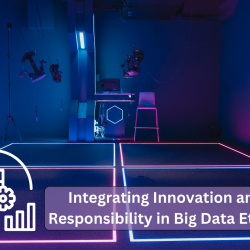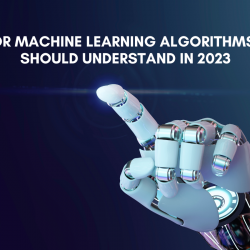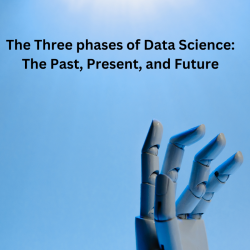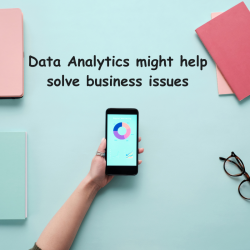Can the UN take on the role of the world’s AI (Artificial Intelligence) watchdog?


Introduction to the UN as the world’s AI (Artificial Intelligence) watchdog
Welcome to our blog! Today, we’ll be discussing a topic that has been making headlines in recent years: AI (Artificial Intelligence). As technology continues to advance at an exponential rate, the use of AI is becoming more prevalent in various industries such as healthcare, finance, and transportation. However, with its rapid growth, there are also growing concerns about the potential risks it may pose.
But first, let’s define what exactly is artificial intelligence? In simple terms, AI refers to machines or computer systems that have the ability to perform tasks that usually require human intelligence, such as decision making and problem solving. These systems are designed to learn from data and adapt their behavior accordingly.
The increasing use of AI has led to concerns about its ethical implications. There is a fear that AI could replicate human biases and prejudices if not developed and monitored correctly. For example, AI algorithms used in recruitment processes could perpetuate discrimination based on race or gender if they are trained on biased data sets.
Understanding Artificial Intelligence & Its Potential Risks
Understanding Artificial Intelligence & Its Potential Risks
As technology continues to advance at a rapid pace, the term “artificial intelligence” or AI has become increasingly common. But what exactly is AI and why is it gaining so much attention? In simple terms, AI refers to machines or systems that are designed to simulate human intelligence and perform tasks on their own, without being explicitly programmed.
However, with great potential comes great responsibility. While we have seen the positive impact of AI in our daily lives, there are also risks associated with its development and usage. And this raises an important question: Can the United Nations (UN) take on the role of the world’s artificial intelligence watchdog?
Defining Artificial Intelligence and its Potential in Various Industries
It can be challenging to define artificial intelligence as its scope is constantly evolving. Generally speaking, AI refers to any computer system or machine that can learn from data and adapt to new situations without being explicitly programmed. This includes technologies such as machine learning, natural language processing, and computer vision.
The potential of AI is vast, with its ability to process massive amounts of data quickly and make decisions based on that information. In healthcare, for example, AI systems can analyze vast amounts of patient data to help doctors diagnose diseases more accurately. In transportation, self driving cars use AI algorithms to navigate roads safely.
The Current State of AI Regulation and Governance
The United Nations (UN) has been at the forefront of discussions on regulating AI for several years now. In 2017, the UN launched the “AI for Good” initiative, bringing together governments, industry leaders, and experts to discuss the development of ethical guidelines and policies for AI. Since then, they have continued to hold annual conferences focused on AI regulation and governance.
One of the main challenges in regulating AI is that it crosses borders and operates globally. Therefore, it is crucial to have a global framework in place to ensure responsible use of this technology. The UN serves as a platform for international cooperation and can potentially play an essential role in overseeing AI development worldwide.
However, many argue that the UN may not be equipped or have enough authority to act as the world’s artificial intelligence watchdog. Currently, countries have their own regulations in place regarding AI usage, making it challenging to create a unified set of rules that all nations can adhere to.
Challenges in Regulating AI on a Global Scale
As we move towards a more technologically advanced world, AI is no longer just a concept in science fiction movies. It has become an integral part of our lives, from virtual personal assistants on our smartphones to self driving cars. The use of AI has also expanded into critical industries such as healthcare, finance, and defense. While AI brings many benefits such as increased efficiency and productivity, there are also concerns about its potential risks and ethical implications.
This is where the role of regulation comes into play. Just like any other disruptive technology, AI needs to be regulated to ensure responsible development and use. This includes addressing issues such as bias in algorithms, data privacy, job displacement, and potential misuse by governments or corporations.
The UN seems like a natural choice for this regulatory task due to its status as a global organization with 193 member states. It already plays a significant role in promoting human rights, protecting vulnerable populations, and addressing international issues such as climate change.
The United Nations’ Role in International Governance
Artificial intelligence is an emerging technology that has the power to greatly influence our world. AI refers to machines or systems that can perform tasks that typically require human intelligence, such as problem solving, decision making, and learning. With its ability to process vast amounts of data and make predictions, AI has already been adopted in various industries like healthcare, finance, transportation, and more.
However, as with any new technology, there are concerns about potential risks and consequences associated with AI. Some fear that unchecked development of AI could lead to job displacement, economic inequality, privacy breaches, and even autonomous weapons.
This is where the United Nations comes into play. As an organization with a focus on promoting peace and sustainable development worldwide, it is well positioned to address these challenges posed by AI. The UN already has several agencies working on issues related to technology and innovation such as the International Telecommunications Union (ITU) and UNESCO.
Possibility of the UN as an Artificial Intelligence Watchdog
The importance of regulating AI cannot be understated. With its ability to learn and make decisions on its own, there are valid concerns about the potential consequences it could have if left unchecked. Without proper regulations in place, AI could unintentionally cause harm or discrimination through biased algorithms or misuse of data.
Traditionally, governments have been responsible for regulating new technologies. However, with the global nature of AI and its potential impact on all countries, a more centralized approach may be necessary. This is where the UN could step in as a neutral party that represents the collective interest of all nations.
One of the key strengths of the UN is its ability to bring together experts from various fields and countries to collaborate and find solutions. This would be especially beneficial when dealing with complex issues surrounding AI such as data privacy, bias detection, and ethical standards. By creating an international regulatory framework for AI, the UN could ensure that all countries adhere to similar standards while also addressing any emerging challenges or concerns.
Evaluating the Viability of the UN as a Global AI Regulator
Before delving into this topic, let’s first define what AI is. Essentially, AI refers to the ability of machines or computer programs to perform tasks that would typically require human intelligence. This includes reasoning, problem solving, and decision making. The global impact of AI is vast and diverse, ranging from economic growth and innovation to job displacement and ethical concerns.
The UN has a history of regulating various global issues such as climate change, disarmament, and human rights. With its established authority in these fields, it may seem like a natural fit for the UN to also regulate AI. However, there are several challenges that the UN may face in taking on this role.
One major challenge is the diverse interests of member states. In previous attempts to create regulations for emerging technologies such as biotechnology and nanotechnology, there have been disagreements among member states about what should be regulated or how much regulation should be imposed.






Ingen kommentarer endnu